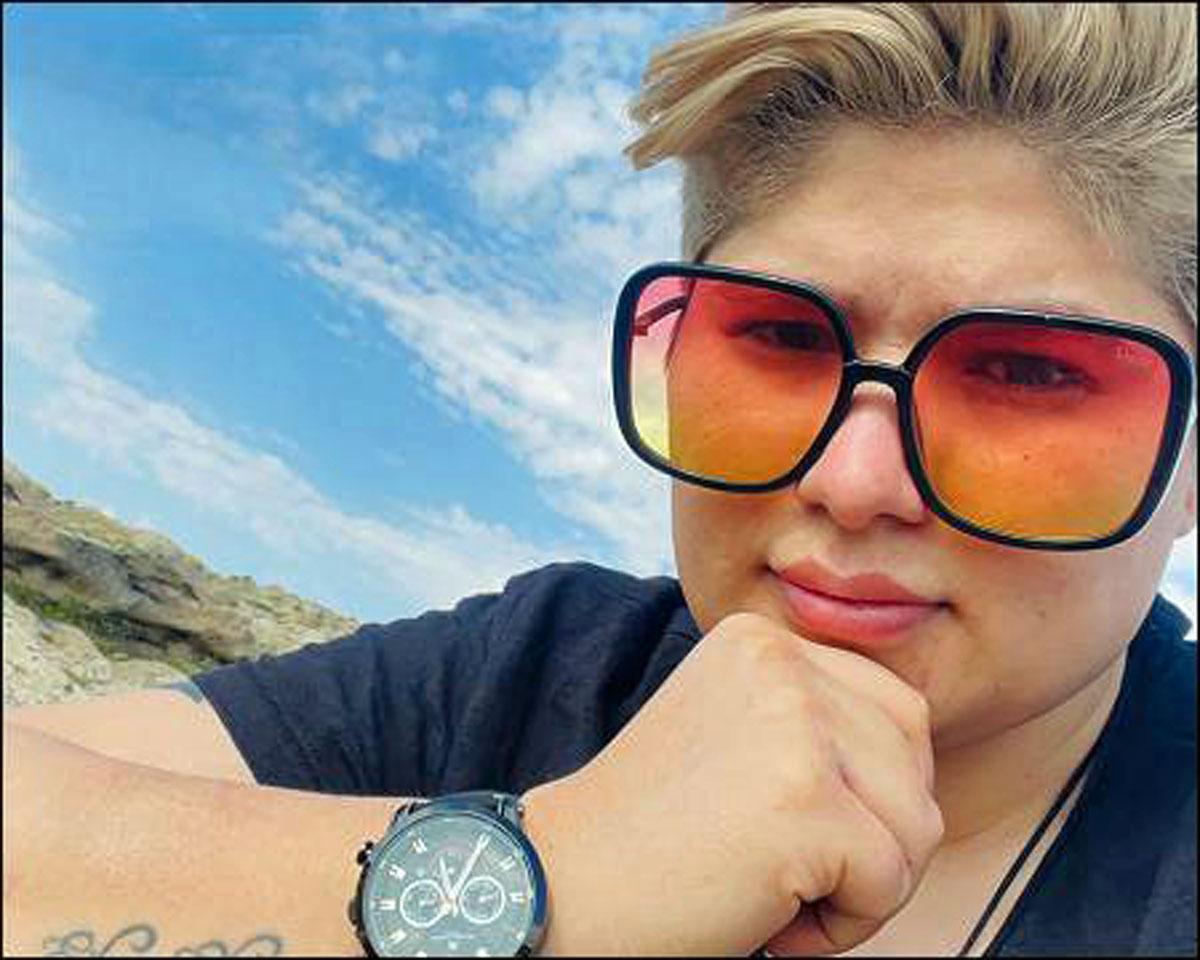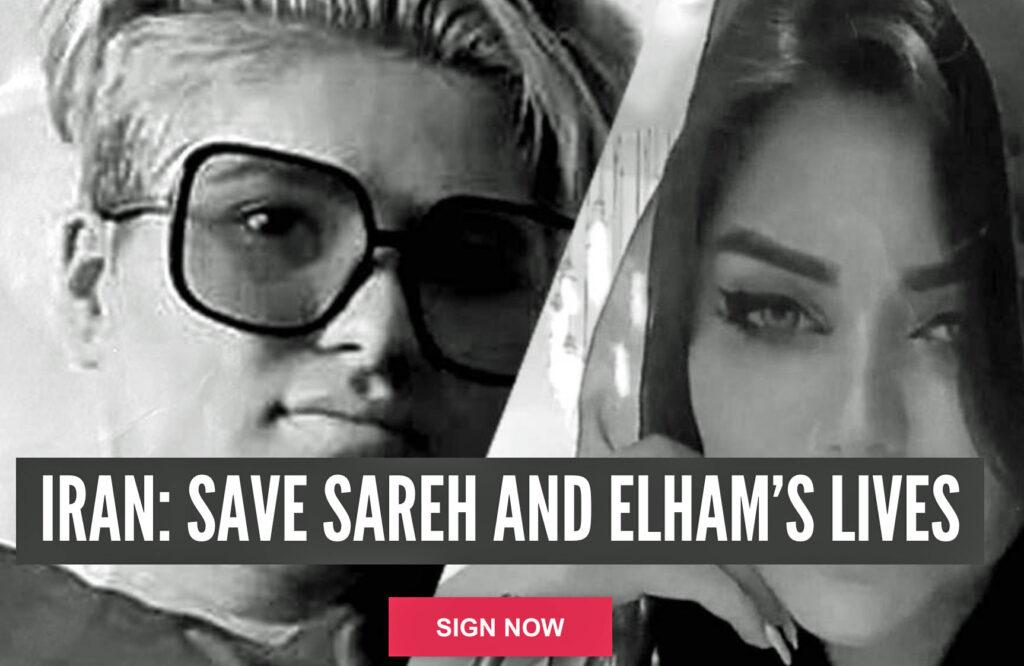Outcry hits Iran for sentencing two LGBTQ rights activists to death
Colin Stewart is a 45-year journalism veteran living in Southern…
A court in Iran sentenced two LGBTQ rights activists to death for “”spreading corruption”. Human rights organizations protested, calling for Iran to overturn the sentences.
Stay up-to-date: Get a free subscription to Erasing 76 Crimes

A petition from the online advocacy group All Out urges the women’s release. As of Sept. 8, it had been signed by more than 55,000 people.
The New Arab reported:
A court in Iran has sentenced to death two gay rights activists on charges of promoting homosexuality, campaigners said Monday, urging pressure from the international community to stop the implementation of the verdicts.
The two women, Zahra Sedighi Hamedani, 31, and Elham Chubdar, 24, were sentenced to death by the court in the northwestern town of Urmia, the Hengaw Kurdish rights organisation said.
They were convicted of “spreading corruption on earth,” a charge frequently imposed on defendants deemed to have broken the country’s stringent sharia laws, it added. They were informed of the sentence while in detention in the women’s wing of the Urmia jail.
In a short statement, the Iranian judiciary confirmed that the sentences had been issued.
There has for months been concern about the fate of Sedighi Hamedani, also known as Sareh, a prominent Iranian LGBTI activist.

She was arrested in October by Iranian security forces while trying to flee into neighbouring Turkey after returning to Iran from Iraqi Kurdistan, where she had been based.
Sedighi Hamedani was subsequently held in solitary confinement for almost two months.
Shadi Amin, a coordinator for the Germany-based Iranian LGBTI rights group 6Rang, also confirmed the execution verdicts, which she said the group had been aware of since Thursday but could now disclose after receiving permission from the families.
“We now demand pressure from Germany and other foreign governments” on Iran for the release of the two women, Amin told Agence France-Presse.
“This is the first time that a woman has been sentenced to death in Iran for her sexual orientation,” she added.
Amnesty International said in January that the charges stemmed from her public defence of gay rights on her social media platforms, as well as an appearance in a BBC documentary aired in May 2021 about the abuses that LGBTI people suffer in the Kurdistan Region of northern Iraq (KRG).
She had decided to leave Iraqi Kurdistan after being detained by the regional authorities. It appears she crossed into Iran again before trying to head for Turkey.
Activists frequently denounce Iran’s treatment of LGBTI individuals.
Homosexuality is banned in Iran with its penal code explicitly criminalising same-sex sexual behaviour for both men and women.
Before leaving Iraqi Kurdistan, Sedighi Hamedani had sent 6Rang videos to be made public in case she failed to make it to safety.
“We, the LGBTI community, are suffering. Whether through death or freedom, we will remain true to ourselves,” she said in one of the videos.
“I hope to achieve freedom,” she added, also alleging that she had been tortured with methods including electrocution while in Iraqi Kurdish custody.
Activists accuse Iran of being in the throes of a major crackdown that is affecting all areas of society, including a new push against the Bahai religious minority, a surge in executions and arrests of foreign nationals.
In a joint statement, ILGA World, ILGA Asia, and 6Rang (the Iranian Lesbian and Transgender Network) urged Iran to overturn the sentence::
Iran: Retract the death penalty sentence and release LGBTI activists Zahra Sedighi-Hamadani (Sareh) and Elham Choubdar
Geneva, 8 September 2022 – Iran must immediately retract the death penalty sentence imposed on LGBTI activists Zahra Sedighi-Hamadani (Sareh) and Elham Choubdar and drop all charges against them – human rights organisations ILGA World, ILGA Asia, and 6Rang (Iranian Lesbian and Transgender Network) said today.
“We are outraged at Iran’s inhumane decision to sentence two LGBTI human rights defenders to death”, ILGA World co-Secretaries General Luz Elena Aranda and Tuisina Ymania Brown said. “We urge the international community to condemn the brutality of this punishment in the most unambiguous terms, and we appeal to the United Nations and all international agencies to do everything in their power, to the full extent of international law, to prevent this atrocity. The sentence must be overturned. Sareh and Elham must be released”.
At the end of August 2022, the Revolutionary Court of Urumieh, in the West Azerbaijan Province of Iran, sentenced them both to death under the charge of “corruption on Earth’”, leaving their lawyers with 20 days to appeal the decision. As ILGA World’s State-Sponsored Homophobia report points out, the vague provision of ‘corruption on Earth’ does not contain any explicit reference to sexual orientation, gender identity and expression, or sex characteristics, but has nevertheless been used in the past against LGBTI individuals.
Following the international outcry about the news, the Iranian judiciary’s news agency stated that the sentencing was for charges relating to allegedly trafficking of women to a neighbouring country.
“Such accusations are unsubstantiated,” said Shadi Amin, Coordinator of 6Rang (Iranian Lesbian and Transgender Network). “The Islamic Republic authorities have a long-standing record of making up charges against activists to justify corporal punishment. It is clear to all of us that what has taken place is not due process, and that all charges against the activists should be dropped”.
Death penalty sentences in Iran have intensified in recent months. Reports have indicated that the Iranian authorities have sentenced at least 251 people to death between 1 January and 30 June 2022 amid well-documented patterns of executions being systematically carried out following grossly unfair trials.
Iran is among the six UN member States where, to date, the death penalty is still the legally prescribed punishment for consensual same-sex sexual acts. There are also five additional UN member States where certain sources indicate that the death penalty may be imposed for consensual same-sex conduct, but where there is less legal certainty on the matter.
In 2017, the UN Human Rights Council issued a resolution condemning the imposition of the death penalty as a sanction for consensual same-sex relations (among others). The resolution built upon a report by UN Secretary-General António Guterres, where he examined its disproportionate impact on different groups and its discriminatory use based on gender or sexual orientation. …
The stories of Zahra Sedighi Hamadani and Elham Choubdar
Zahra Sedighi-Hamadani (Sareh), 31, lived in Erbil, Iraq, and used a virtual platform to speak about the human rights of LGBTI people. In October 2021, she was arrested in Iran while attempting to cross the border to seek asylum in Turkey. She had to flee after being targeted for participating in an interview with BBC Persian and speaking up on the situation of LGBTI persons in Erbil. She was charged with crossing the border illegally as well as of “promoting homosexuality”, although no evidence has been offered to substantiate the accusations. Reports indicate that Sareh was coerced into confessing to these ‘crimes’ – potentially through acts of torture, including solitary confinement and threats of having the custody of her two children taken away from her.
Elham Choubdar, 24, is a wedding dresses shop owner and a friend of Sareh, with whom she had appeared on some Instagram live sessions. After Sareh was arrested, the same happened to Elham, who was charged for encouraging corruption and depravity.





